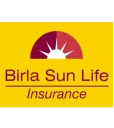
Life insurance policies have distinct tax advantages due to which they are highly favoured among individuals. Besides providing life insurance coverage, life insurance policies also are an avenue to reduce your tax outgo. Premiums paid for life insurance plans qualify for tax deduction under Section 80C. The maximum exemption which you can avail from Section 80C is limited to INR 1.5 lakhs. However, is that all you need to know about your life insurance plan’s premium exemption?
No, it’s not. Though life insurance premiums are allowed as tax deduction, there are certain rules which you should know about this deduction benefit. Let’s see what these rules are –
Rules for Section 80C:
For your life insurance policy’s premium to be eligible for deduction under Section 80C, some rules are required to be followed. These include the following –
- Life Insurance Policies bought before 31st March 2012:
If you had bought a policy any time before and up to 31st March, 2012, the premium amount you have paid should not be more than 20% of the sum assured of the plan. If, the premium is up to 20% of the sum assured, it would be allowed as a deduction under Section 80C.
However, if the premium is more than 20% of the sum assured, deduction would be available only on the amount of premium up to 20% of the sum assured.
For example, if you had bought a policy with a sum assured of INR 3 lakhs, the premium up to INR 60,000 would be eligible for deduction under Section 80C. However, if the premium is, say, INR 80,000, you would get deduction only on INR 60,000, i.e. 20% of the sum assured even though the maximum eligible amount for 80C is higher. The remaining amount of INR 20, 000, would not be eligible for a tax deduction.
- Life Insurance Policies bought after 31st March 2012:
If, on the other hand, you have bought a policy on or after 1st April, 2012, the amount of premium should be up to 10% of the sum assured to qualify for deduction under Section 80C.
In the same example, in a policy of INR 3 lakhs, the premium should be up to INR 30, 000 to be allowed as a tax-free investment. If the premium is higher, deduction would be available only on INR 30, 000. The excess premium would not be eligible for tax deduction U/S 80C.
So, if the premium is INR 80,000 as mentioned, the remaining INR 50, 000 would not be eligible for tax deduction U/S 80C.
- Single Premium Plans:
In case of single premium plans also, the premium should be up to 10% of the sum assured to be allowed as a tax-free investment. If the premium is INR 1 lakh and the sum assured is INR 5 lakhs, only INR 50, 000 would be allowed as tax-free deduction. The remaining INR 50, 000 would not be eligible for tax deduction U/S 80C.
Rules for 80DDB:
There is another exemption rule which most people are not aware about. According to the rule, if the policy has been issued on or after 1st April, 2013, and the life insured suffers from a disability as specified under Section 80U or suffers from a serious ailment as specified under Section 80DDB, the deduction limit is higher. In such cases, premiums paid up to 15% of the sum assured qualify for deduction. So, if the policy has a sum assured of INR 5 lakhs, the allowed premium which qualifies for tax deduction would be up to INR 75, 000.
Minimum Holding Period:
There is also a minimum period for which the plans should be held. If they are surrendered or terminated before the minimum holding period, the tax deduction allowed on the premium paid would be reversed. The minimum holding period for the plans is as follows:
- ULIP- 5 years
- Single Premium Plans- 2 years
- Other Life Insurance Policies- 3 years
So, these are the rules for premiums to qualify as tax-free investments under Section 80C. You can pay the life insurance premium for yourself, your spouse and your dependent children to claim Section 80C exemption. Moreover, members of a Hindu Undivided Family (HUF) can also claim the same tax benefits stated earlier. If your premium includes premiums for a health insurance rider, like critical illness rider, hospital cash rider, major surgery rider, etc., the part of the premium which is paid for riders would qualify for deduction under Section 80D and the rest would be considered under Section 80C. The maximum deduction available under Section 80D is INR 25, 000 which increases to INR 50, 000 if you are a senior citizen.
Also, check out our video below to know the tax benefits of life insurance
So, while your life insurance plans provide tax relief on the premiums paid, know the rules of availing tax exemptions. The tax saving deduction might not be allowed for premiums which do not fulfil the above-mentioned rules. So, when buying a life insurance policy, make sure that the premiums you pay fulfil the above-mentioned rules and give you a tax-advantage.
Read more about tax in-case of surrender or termination of life insurance policy
Read more about taxation facts about your insurance policies
Read more about TDS on life insurance policies





























